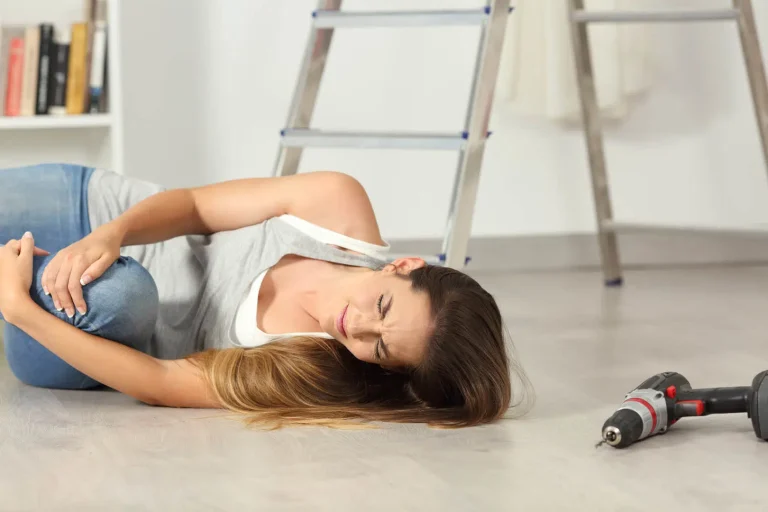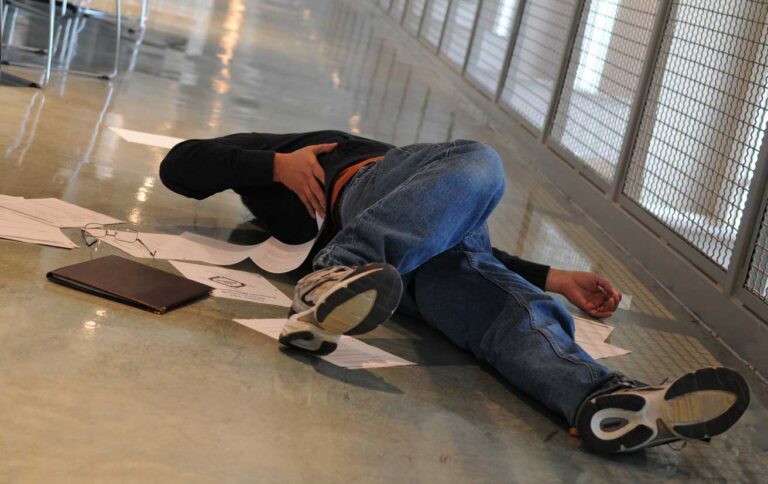One of the most frequent reasons for emergency visits among people of all ages is falls. While many fall-related injuries may be managed at home, you may require immediate care if you sustain a fracture, dislocation, or soft tissue injury. Other frequent injuries from falls include sprains and strains, which, if untreated, can quickly get worse. Even though it doesn’t seem like a serious injury, you might need urgent attention if your fall caused a hand or wrist injury. Since serious joint issues frequently don’t start out with pain, they could go unnoticed until they worsen.
Visits to urgent care facilities are frequently caused by injuries sustained in falls. Falls can result in a variety of injuries, including minor sprains, severe concussions, and occasionally even more severe ones like fractures or dislocations. Seniors and young children, who might not be able to communicate when they are harmed or how seriously, are particularly vulnerable to falls. Installing safety gates at entryways, positioning grab bars in strategic locations around bathrooms and next to tubs, and always ensuring that your home is well-lit are some suggestions on how to prevent falls in your home. These safety measures help you and others avoid needless suffering, hospitalization, and other expensive mishaps that frequently send people to urgent care centers.

AMONG THE INJURIES SUSTAINED AFTER A FALL ARE
- Traumatic brain injury
- Strains and sprains
- Broken or fractured bones
- Spinal injuries
- Bruises and cuts
- Stretched or torn tendons and ligaments
- Dislocated shoulders
- Injured tailbone
- Hip fractures
- Thoracic injuries (injuries to the chest and organs in the chest area)
- Back and neck injuries
- Internal organ and nerve damage
- Paralysis
In the majority of situations, the seriousness of the damage will be greatly influenced by the gravity of the fall and the state of health of the victim.
INFORMATION ON FALLS
The Centers for Disease Control and Prevention (CDC) estimate that 3 million Americans are hurt by falls yearly, with 20% of those injuries being severe.
Additionally, nearly 800,000 Americans must be hospitalized after a fall-related injury. Falls are the most common cause of hip fractures and traumatic brain injuries, and they also account for 95% of hip fractures. According to the World Health Organization, falls are the second-leading cause of accidental injury-related death globally.
WHAT TO DO AFTER GETTING INJURED FROM A FALL?
Accidents or diseases including stroke, heart attack, high blood pressure, and diabetes can lead to falls. If you believe you have experienced a fall-related injury, such as a fractured bone, head injury, or spinal cord damage, it is crucial to get medical assistance straight once. To avoid further complications, these wounds might need to be operated on straight away. After an accident, a doctor will likely advise getting x-rays and a CT scan to look for any internal bleeding or other damage. Your healing time could be shortened and your outcome greatly enhanced with the help of these scans. Even if there is no immediate danger or cause for significant concern, you should remain still until help arrives if you have fallen and are hurt.

PREVENTING FALLS
There are some good strategies to try and stop falls. Among these hints are :
- Always keep an eye on the surroundings as you go.
- Keep to the authorized pedestrian lanes and walkways.
- Never try to get anywhere in a hurry.
- Ensure that the path is well-lit.
- Avoid using any broken stairways, sidewalks, or pathways.
- Put on the proper footwear.
The fact that falls frequently cannot be prevented must be emphasized. There may be unexpected and unavoidable hazards in this area if they are present on a private person’s or company’s property. As a result, it is crucial to be conscious of your surroundings.
You should consult a professional if you’ve fallen and suffered injuries. Call (469) 545-9983 to schedule an appointment with Specialty Care Clinics.
